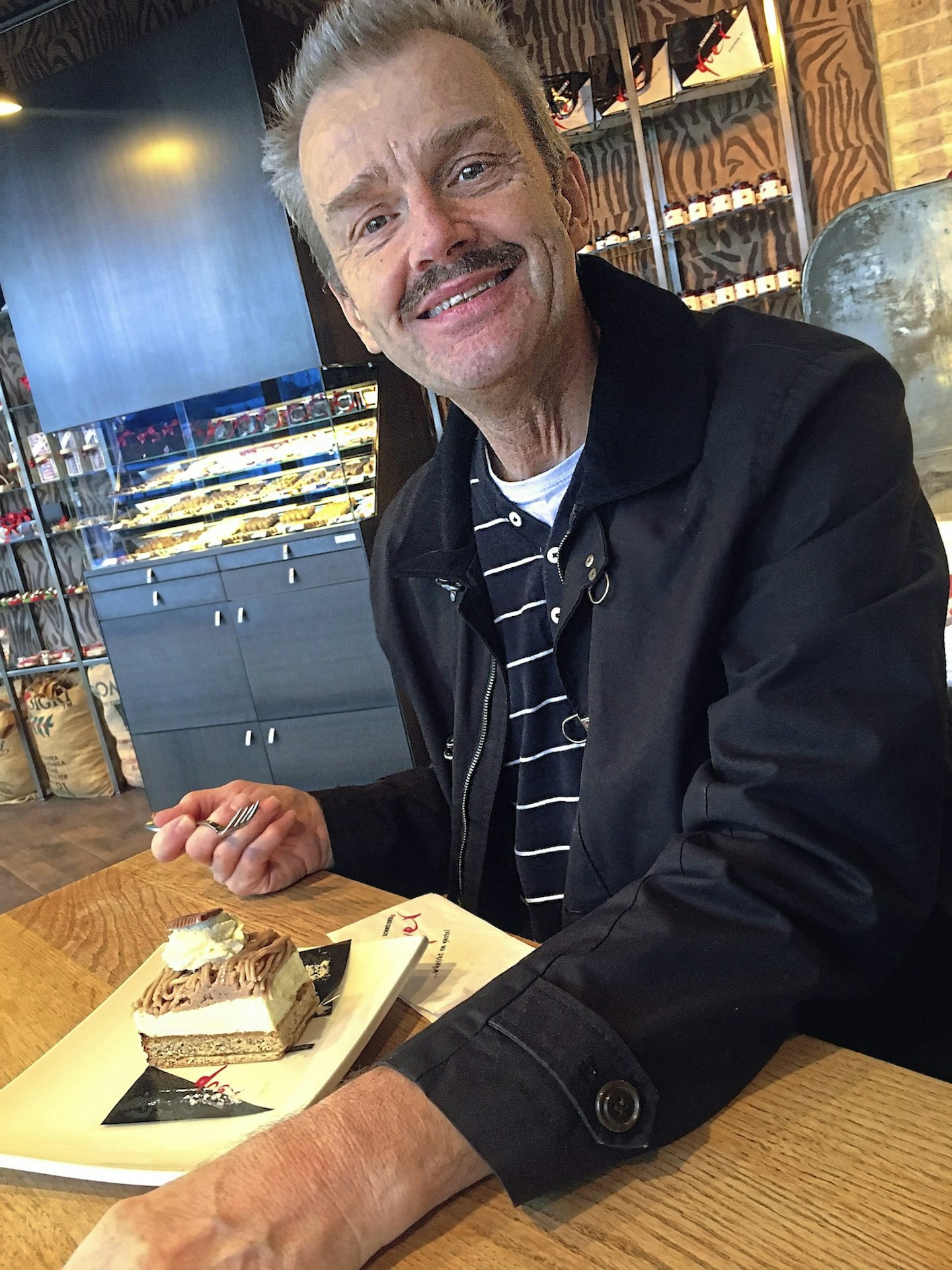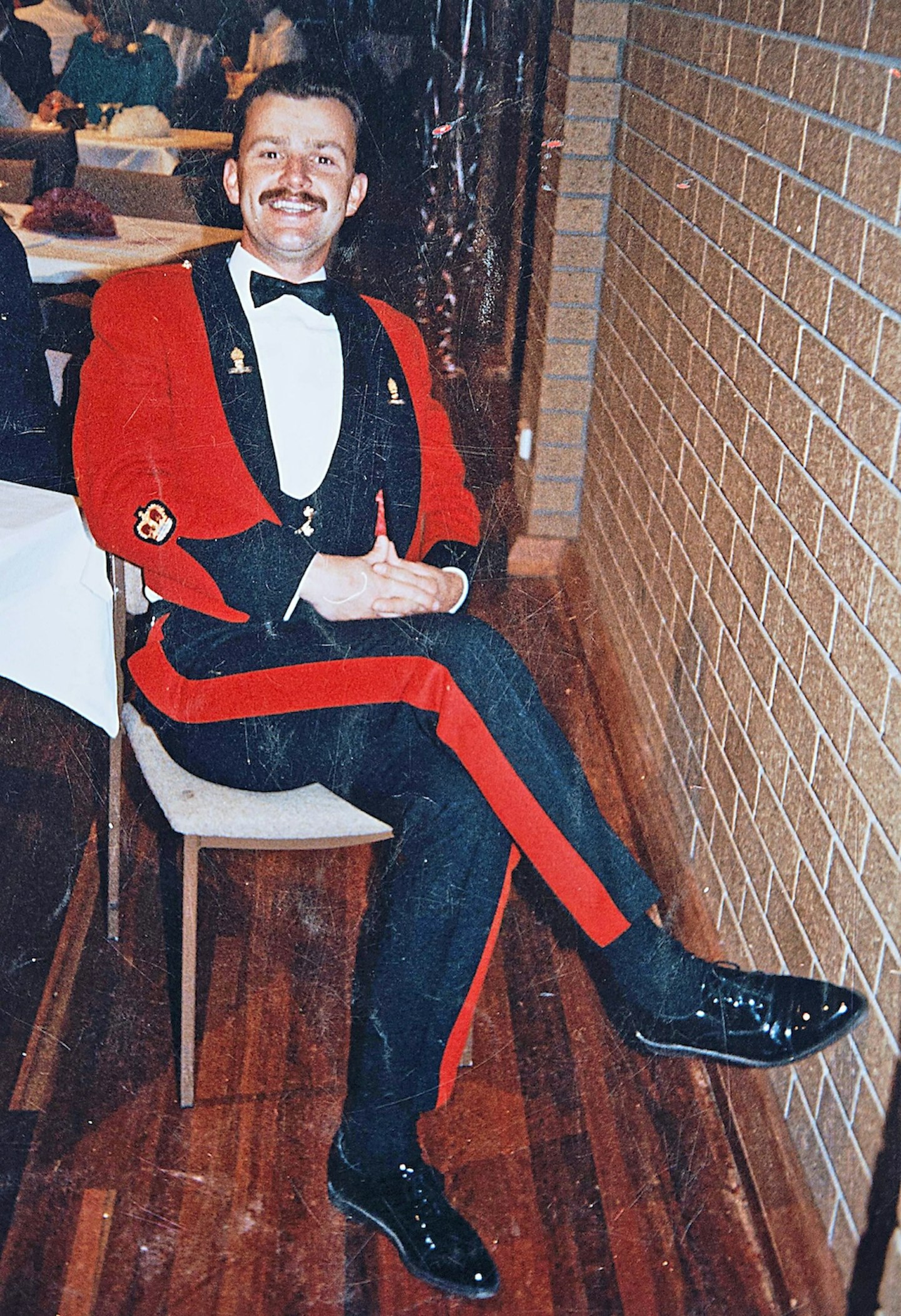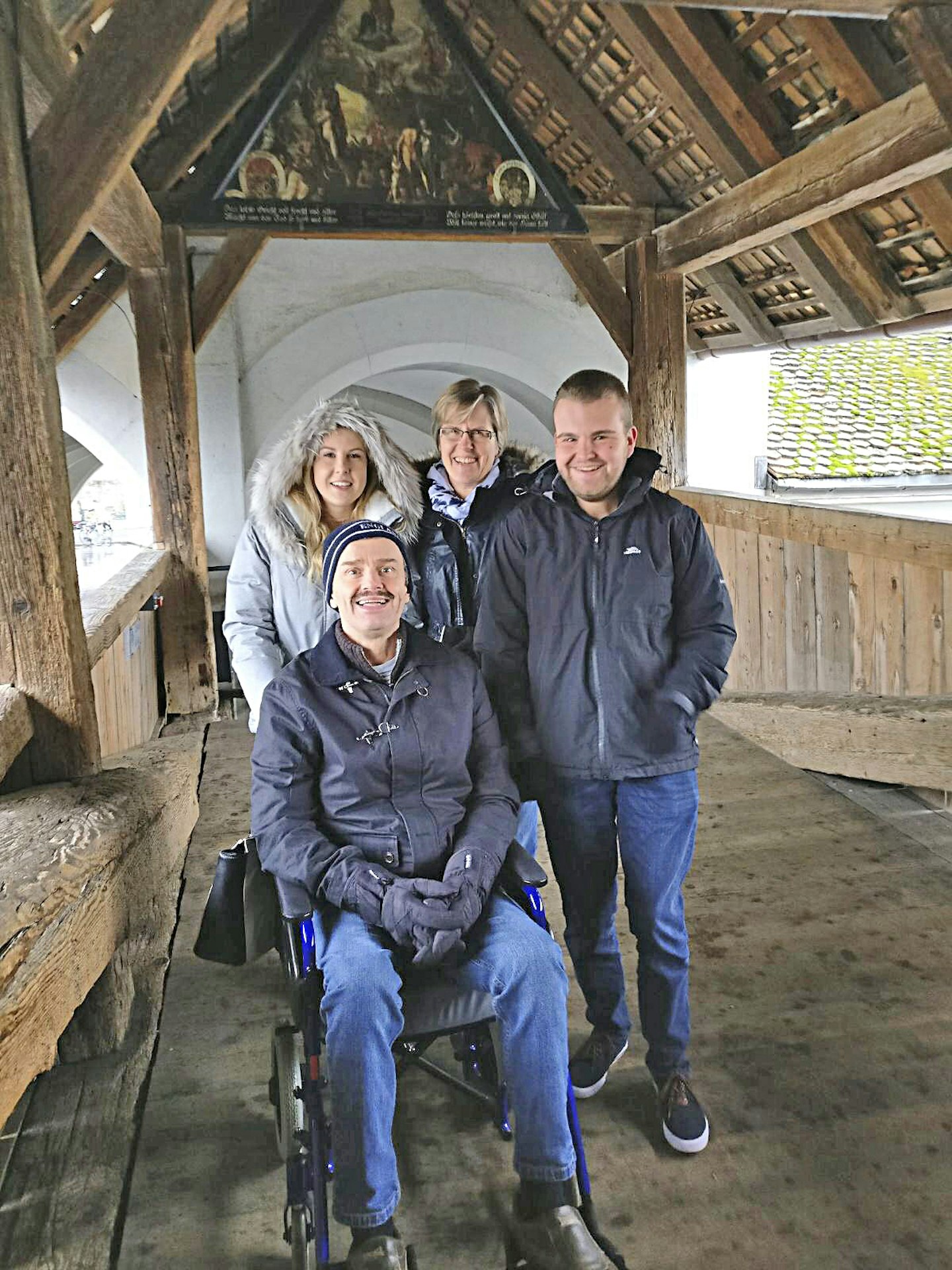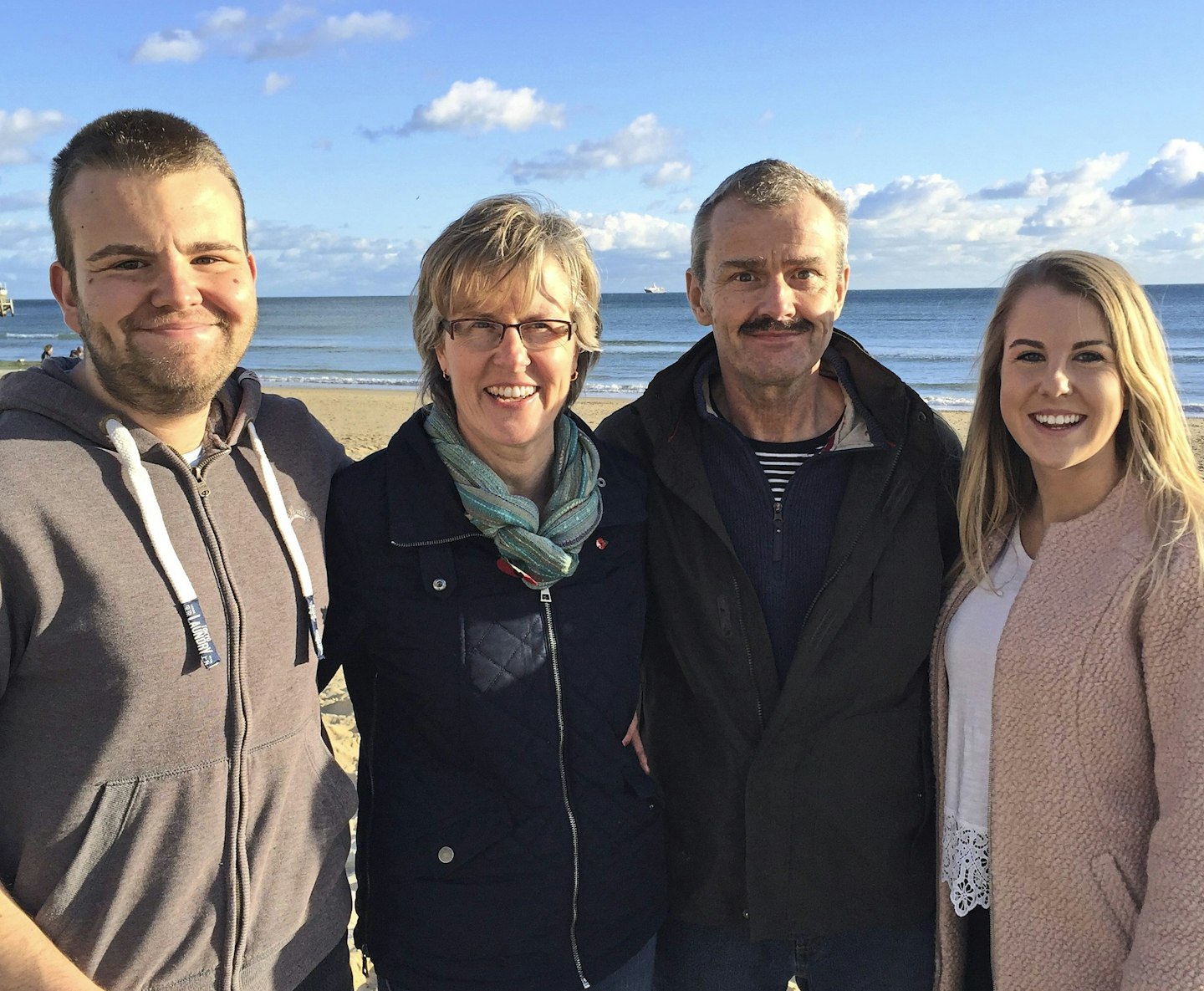My husband Keith’s health was slowly deteriorating and he had one final wish. But could I really help him to make it happen? By Sara Fenton, 61

Helping my husband Keith up from the kitchen floor where he’d fallen, I felt anxious.
‘Are you OK?’ I asked.
‘How did I do that?’ Keith said, confused.
He’d fallen over a few times lately, and his toes had started twitching too.
It scared me, because there was a history of Huntington’s disease in Keith’s family — an inherited, incurable condition that damages nerve cells in the brain, stopping them working properly.
He’d lost his father, sister and brother to this cruel condition. His brother had only been in his 40s when he’d died.
Towards the end, they’d all been unable to walk, talk or feed themselves. It had been heartbreaking for him to watch.
When Keith began struggling at his Army job, he reluctantly went for tests. I went with him to get the results, and they were devastating.
‘I’m sorry, but it is Huntington's,’ the consultant said.
Keith and I looked at each other. We both knew the frightening future that lay ahead.
The doctor predicted that at the most, Keith, now 50, had another 15 years to live.

‘There’s no way of slowing it down,’ she explained.
We were both silent as we got back in the car to go home. Nothing I could say would make this better.
It was Keith who broke the silence.
‘There’s always Dignitas,’ he said.
I’d heard about it on the news. It was a clinic in Switzerland that provided physician-assisted suicide to people with terminal illness.
It was one of the few clinics that allowed UK citizens to end their own lives, because assisted dying was illegal over here.
‘It’s an option,’ I replied, hoping it was just the shock talking.
Back home, I broke the news to our children Edward, 16, and Charlotte, 13.
Before long, Keith had to give up the job he loved. But as a family, we rallied around to support him.
'I don't want to suffer'
We helped him cut up his food, picked up cutlery and other things he dropped, and tended to his cuts and bruises when he fell.
Keith had always been so active, riding bikes with the kids and enjoying long country walks. It was hard for him to cope as Huntington’s slowly took over his body, robbing him of everything.
When he began choking on is food, he refused a feeding tube.
After seven years, Keith told me: ‘I’ve had enough.’
I feared what was coming.
‘I don’t want to suffer the same fate as the rest of my family,’ he continued. ‘I don’t want to have someone bathe, dress and feed me. I want to go to Dignitas.’
‘No, please don’t go,’ I begged. ‘We can manage.’
When he didn’t mention it again, I hoped that was it.
But a few months on, I woke at 2am and found Keith awake too.

‘I’ve taken an overdose,’ he said. ‘Please don’t call an ambulance.’
But I immediately called 999, and he was rushed to hospital.
He survived, but it made me realise my husband was desperate, and was horrified by the way he was deteriorating.
We’d been selfish wanting to keep him with us.
‘Are you 100 per cent sure you want to end your life at Dignitas?’ I asked him.
‘Absolutely,’ he replied.
When we discussed it with the kids, they were remarkably brave and accepted their dad’s wishes.
It would cost £12,000, but we had some savings, so I filled in the online form for him.
Dignitas required so many details — proof of his diagnosis, a biography of his life, and why he wanted an assisted death.
'See you on the other side!'
After passing an assessment with a psychiatrist to prove he had the mental capacity to make this decision himself, a letter arrived from Dignitas confirming that they’d help him die.
‘This is all I wanted,’ he said, relieved.
I didn’t want to lose my husband, but I felt happy for him.
We knew that once we got to Switzerland, Keith would have two more face-to-face consultations — with a day in between for reflection — to make sure he was certain it was what he wanted.
But after receiving the letter, he was like a different person. He wanted to go out to places, visit friends and loved ones.
‘I finally feel back in control,’ he told us.
We only told close family and friends, so no one would try to stop us.
In the UK, assisting someone’s suicide was an offence punishable by 14 years in prison, and Keith was so worried for us.

‘We’ll face it if it happens,’ I reassured him.
Two months later, Keith, the kids and I left our home in Hungerford, Berkshire, for Heathrow Airport.
Keith’s closest friends gathered at the terminal to see him off.
‘See you on the other side!’ he told them smiling.
We flew out to a hotel in Zurich, and John, who’d been Keith’s best man when we’d married, joined us.
Those next five days were some of the happiest we’d had in the previous five years.
Keith drank and ate like it was going out of fashion, and never choked once!
We joked around, and told each other everything we wanted to.
Edward and Charlotte wrote their dad letters saying how proud they were of him, and how much they loved him.
But eventually the morning of Keith’s last day arrived.
Before heading to the clinic, we all went to a café.
As Keith tucked into cake and coffee, Charlotte took one last photo of him. He looked so at ease.
Charlotte and I went to the clinic with him.
We were shown to a room, where we sat around a table and the nurse asked: ‘Keith, do you want to die today?’
‘Yes, I do,’ he replied.
Once the formalities were completed, Keith lay down on the bed.
There were candles, and soft music was playing in the background as he drank the medication.
We’d been told that after a few minutes, Keith was likely to fall into a deep sleep.
Yet, as Charlotte and I sat either side of him holding his hands, my beautiful husband just kept talking and telling jokes.
Finally, after two and a half hours, he did fall asleep. And soon after, his breathing stopped.
He was just 59.
Well done, Keith, you got what you wanted, I thought, so proud of my amazingly brave husband.
On the flight home, I couldn’t stop looking at the spare seat on the plane.
I worried about whether the police would be waiting for us when we landed too. But they weren’t.
The following month, we returned to collect Keith’s ashes.
Just as I’d promised him, I became a campaigner for Dignity in Dying, and was awarded its Campaigner of the Year award.
Keith had wanted to pass away peacefully in his own home, not in a foreign country.
And he died before he needed to, for fear that he might not have the mental capacity to pass all the assessments.
Not everyone has the money to pay to go to Dignitas, and we’re campaigning for all terminally ill, mentally competent adults to have the choice of a peaceful, dignified death.
And to enjoy their final few weeks. Just like my Keith did.
• For more information visit dignityindying.org.uk
